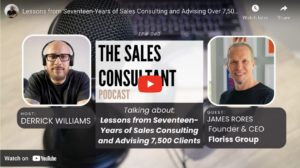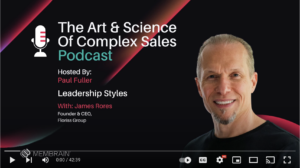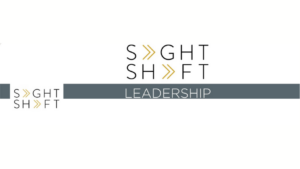Ask any thoughtful salesperson what the most important element is when helping people buy, and chances are you’ll hear “Trust” without hesitation. They are right in believing that trust is essential, but as we explored in Part One of this series, trust isn’t earned until the buyer and servant leader develop a mutual understanding of the real problem(s) and solution(s) each brings to the table.
Part One of this series focused on understanding as the foundation of a successful buying relationship. The first objective to be achieved if the goal is to transform your sales team from transactional to customer-centric.
Once a foundation of mutual understanding is established, and in order to progress a successful buying relationship, a servant leader must foster mutual trust.
Trust cannot exist without understanding, but it is ultimately achieved through a salesperson’s demonstration and expectation of four key character traits, each of which can be learned: Authenticity, Vulnerability, Transparency, and Accountability.
Let’s take a closer look at the definition of each character trait, as it pertains to the salesperson’s task of building a successful buying relationship:
Authenticity
Authenticity is about discovering and being yourself. This requires a high degree of self-awareness and the ability to present yourself as who you are and not who you think your customers want you to be.
This has a lot to do with your commitment to being intentional; to creating an observable alignment between who you are and what you do. Are you serving shared goals and leading others along a shared path to change? One that reflects high character and core values? Are you earning the right to expect the same of your buyer?
Whether you are or not, your buyer will know. You’ll either show up as sincere or salesy, and it is far easier to fool yourself than it is to fool your buyer.
Vulnerability
Vulnerability is about showing up and allowing yourself to be seen – not just as a competent professional, but as a human being.
It’s easier to trust someone you see as human than someone hiding behind a manufactured corporate persona, or someone who is playing it safe by not revealing who they are. Showing the side of you that’s imperfect, empathetic and non-judgmental can bring genuine warmth to a conversation without compromising your professionalism. It starts with softening and eventually letting go of your ego and the illusion that you are somehow separate from your buyer.
Doing so allows you to create and strengthen meaningful connections with buyers instead of feeling the need to gather authority and impose your will or power over their decisions.
Transparency
Transparency is about offering and accepting the truth; not versions of the truth that work better at certain times or can be justified by a specific goal. This is about committing yourself to giving and getting absolute clarity in the communication of ideas, knowledge, and insights.
Every decision you make and action you take teaches your buyer something about who you are, how you will treat them, and how you expect to be treated.
It is how your buyers experience you that informs their view of your integrity, character and core values. The best salespeople don’t trick or sway people into buying from them; rather, they lead their prospects to an unmistakable conclusion via an informed and customer-centric buying cycle.
When you prioritize transparency, both in yourself and in the buying process, your buyer never has to guess what your goals or priorities may be. Instead, they’re more likely to acknowledge that you have both their and your best interests in mind as you demonstrate your commitment to a buying decision that ultimately benefits both sides.
Accountability
Accountability is about your obligation to make and deliver on your commitments. And, by virtue of your example, it is about earning the right to hold buyers and team members to the same high standard.
Throughout the buyer journey, a salesperson will be asking the buyer for certain commitments, whether it’s scheduling a meeting for Wednesday at 10 am or reviewing a piece of collateral. The salesperson should hold the buyer accountable for these commitments – but in return, the buyer should be able to expect the same level of accountability from the salesperson.
In a similar vein, many buyers depend on salespeople to have their best interests in mind. Buyers don’t always know the right questions to ask and will often lean on the salesperson for a recommendation that helps inform their buying decision.
The first step is learning how to ask for reasonable commitments at key stages of the buying cycle – commitments that serve your and your buyer’s shared goals. The second step is embracing your obligation to follow up on each commitment as promised. Ultimately, both steps are required to create an environment where trust can be both given and received.
When buyers experience your discipline for holding true to your commitments, they are more likely to follow through on their own. Though it does not hurt to also learn how to hold them accountable.
Earning Trust to Create Successful Buying Relationships
Trust isn’t just a word or the rational conclusion of job well done. Trust is an emotion that is always subject to how your buyer feels. The more trustworthy you are, the more likely your buyer will rise to meet you where you are. Trust begets trust.
It is also true that the less trustworthy you are, the more barriers you will create for yourself and for those who could be your clients.
In Part Three, we’ll close our series by examining how understanding and trust work in tandem to secure a successful buying relationship, with the creation of mutual respect.










